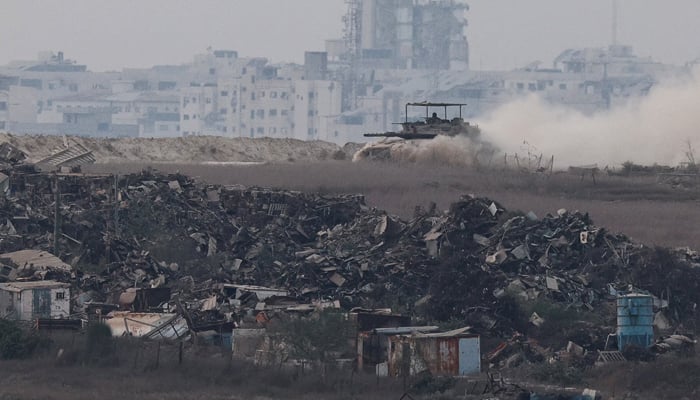Select Language:
Hamas has agreed to a new ceasefire plan in Gaza without requesting any modifications, according to a group source told AFP on Monday, following renewed diplomatic efforts to end over 22 months of hostilities.
Egypt and Qatar, supported by the United States, have been working to broker a lasting ceasefire amid a severe humanitarian crisis in Gaza. After receiving a new proposal from mediators, Hamas indicated it was open to negotiations.
“Hamas has responded to the mediators, confirming that Hamas and other factions accept the new ceasefire proposal as is—no amendments needed,” the source said anonymously. Israel has yet to comment on the development.
A Palestinian insider involved in the talks mentioned that mediators are “anticipated to declare that an agreement has been reached and to set a date for renewed discussions,” adding that assurances are included to ensure the agreement’s implementation and to work toward a long-term solution.
Another Palestinian official mentioned that mediators proposed an initial 60-day ceasefire with hostage releases in two phases. This comes after Israel’s security cabinet approved plans to expand military operations into Gaza City and nearby refugee camps, which has drawn international criticism and internal opposition.
An Islamic Jihad representative shared with AFP that the 60-day truce would see the release of ten Israeli hostages alive, along with some bodies, during the first phase. Out of 251 hostages taken during Hamas’s October 2023 attack, 49 remain detained in Gaza, including 27 believed dead by the Israeli military.
The Islamic Jihad source added that the remaining captives would be released later in a second phase, with negotiations for a broader settlement continuing. They claimed that all factions favor the Egyptian and Qatari proposal.
U.S. President Donald Trump posted on Truth Social, “We will only see the return of the remaining hostages when Hamas is confronted and destroyed!!!” He emphasized that the sooner this occurs, the better the chances of success.
Last week, Prime Minister Benjamin Netanyahu stated that Israel would agree to an agreement releasing all hostages at once under their conditions to end the war.
Meanwhile, in Gaza, footage from Khan Yunis showed mourners kneeling over the bodies of loved ones who died seeking aid the previous day—a tragic scene repeated amid ongoing conflict.
Egyptian Foreign Minister Badr Abdelatty, visiting the Rafah border crossing with Gaza on Monday, said Qatari Prime Minister Sheikh Mohammed bin Abdulrahman Al Thani was visiting to strengthen current efforts aimed at pressuring both sides toward a deal.
Abdelatty highlighted the worsening humanitarian situation in Gaza, where over two million residents face famine and other crises, urging for swift agreement. “The current conditions on the ground are beyond what anyone could imagine,” he stated.
Egypt also expressed a willingness to join an international force if backed by a UN Security Council resolution and accompanied by a political framework.
On the ground, Gaza’s Civil Defence reported that Israeli forces killed at least 11 people Monday across the territory, including six in the south. The Israeli military, contacted by AFP, denied knowledge of any casualties from their fire in those areas. Due to media restrictions and limited access, independent verification of these reports remains challenging.
Amnesty International accused Israel of deliberately starving Gaza and systematically destroying Palestinian social fabric and health systems, while Israel denies intentionally causing such suffering despite tight aid restrictions.
Since Hamas’s October attack, which claimed 1,219 Israeli lives, Israel’s military operations have resulted in the deaths of over 62,000 Palestinians, mostly civilians, according to Gaza’s health authorities.







